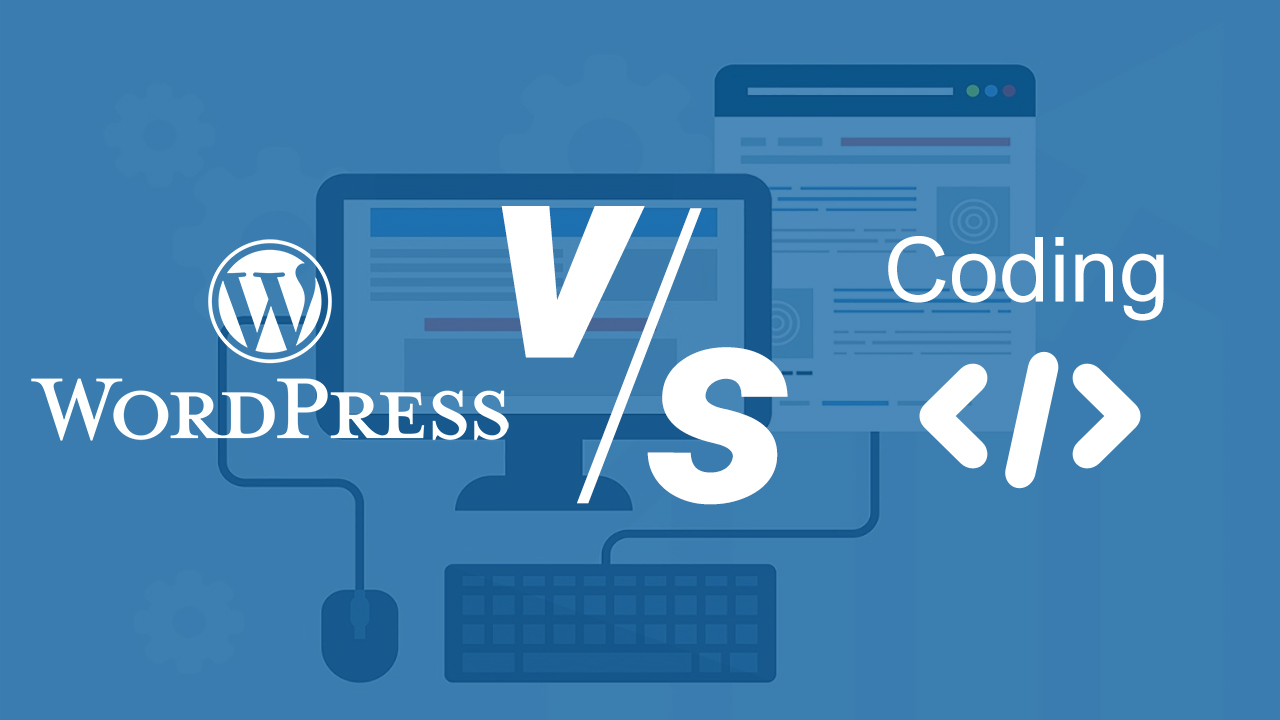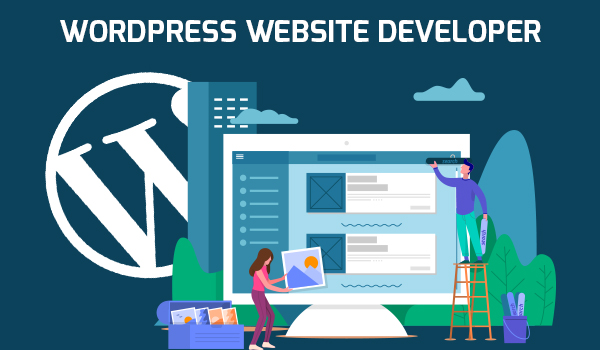The option between adopting a Content Management System (CMS) like WordPress and hand-coding a website from scratch remains a point of contention in the ever-changing web development landscape. Each approach has advantages and disadvantages, and the choice is ultimately determined by criteria such as project needs, technical proficiency, and desired level of customization. In this essay, we’ll go over the benefits and drawbacks of both WordPress and code to help you make an informed selection based on your requirements.
Understanding WordPress: A CMS Perspective
WordPress, a robust and user-friendly CMS, has become synonymous with website building due to its ease and versatility. Here are a few important benefits of utilizing WordPress:
1. Rapid Development and Deployment:
-WordPress simplifies the development process, enabling developers to quickly create fully functional websites.
-Developers can create a sophisticated website without beginning from scratch by utilizing a large library of pre-built themes and plugins.
2. User-Friendly Interface:
-WordPress is well-known for its user-friendly interface, which makes it accessible even to those with less technical understanding.
-Content development and management become seamless tasks, allowing clients to independently maintain their websites.
3. Extensive Plugin Ecosystem:
-WordPress’s extensive plugin ecosystem allows developers to add varied capabilities without requiring sophisticated coding.
-Plugins can expand a website’s capabilities in a variety of ways, from SEO optimization to e-commerce integration.
4. Regular Updates and Community Support:
-WordPress is updated regularly to ensure security, performance, and compatibility with the most recent technology.
-A thriving community offers developers support, troubleshooting aid, and a wealth of tools.
5. Cost-Effectiveness:
-Because it eliminates the need for heavy custom code, WordPress greatly cuts development expenses, particularly for smaller projects.
-The availability of free themes and plugins helps to reduce costs even further.
Examining Hand-Coding from the Perspective of Customization
While WordPress is a convenient solution for many developers, some prefer the complete control that hand-coding affords. Let’s look at the benefits and drawbacks of building websites from the ground up:
1. Unmatched Customization:
-Hand-coding enables developers to construct highly customized websites that cater to specific design and functionality needs.
-Complete code control allows for the creation of one-of-a-kind features and complicated design elements.
2. Better Performance:
– Hand-coded websites typically perform better because developers can optimize every area of the code for speed and efficiency.
– The elimination of extraneous code and dependencies speeds up loading times.
3. Seamless Integration with Complex Systems:
– Hand-coding provides a more seamless alternative for large-scale projects or those requiring intricate integrations with databases, APIs, or third-party systems.
– Custom code gives you complete control over data handling and system interactions.
4. Learning and Mastery:
– Hand-coding provides an essential learning experience for developers wishing to enhance their expertise in web technologies.
-It enables mastery of programming languages, frameworks, and web development best practices.
5. Initial Learning Curve:
-Hand-coding has a steeper learning curve than utilizing a CMS like WordPress.
-Beginners may struggle to understand the complexities of coding languages and frameworks.
6. Time and Resource Consumption:
-Creating a website from scratch requires more time and resources, making it unsuitable for projects with short deadlines or limited budgets.
– Routine tasks that are simplified by CMS platforms may take longer to complete manually.
Making a Decision: Which Approach Is Best for You?
Finally, the decision between WordPress and hand-coding is dependent on a variety of criteria, and there is no one-size-fits-all solution. Consider the following questions as you make your choice:
1. Project Requirements: What are the project’s unique requirements? Is a high level of customization required, or can it be accomplished easily using current plugins and themes?
2. Development Speed: Is speedy development and deployment required, or is a more meticulous, custom-built solution possible?
3. Client Independence: – How much content management authority do you want to provide your clients? Will they be actively involved in the upkeep of their websites?
4. Skillset and Learning Goals: – What is your present skill level, and what are your long-term learning objectives? Do you want to specialize in a specific programming language or framework?
5. Budget Constraints: – What is the project’s budget? Is there a budget constraint that makes one strategy more realistic than the other?
Conclusion: Finding the Perfect Balance
There is no clear winner in the dispute between WordPress and hand-coding. Both approaches have advantages, and the optimal option is determined by the project’s specific requirements and the developer’s preferences. Some developers may discover that combining the freedom of hand-coding with the efficiency of a CMS finds the ideal balance.
Finally, the key is to be adaptable and adopt a method that corresponds with the project’s goals, the client’s preferences, and the development team’s strengths. Whether you choose WordPress for its ease of use or hand-coding for precision, the end goal is to develop a website that not only meets but exceeds expectations.
Read Also:- What is WordPress Hosting? Definition, Features & Benefits.
Get Your Website Build Here:- Wpdeveloperz.com


